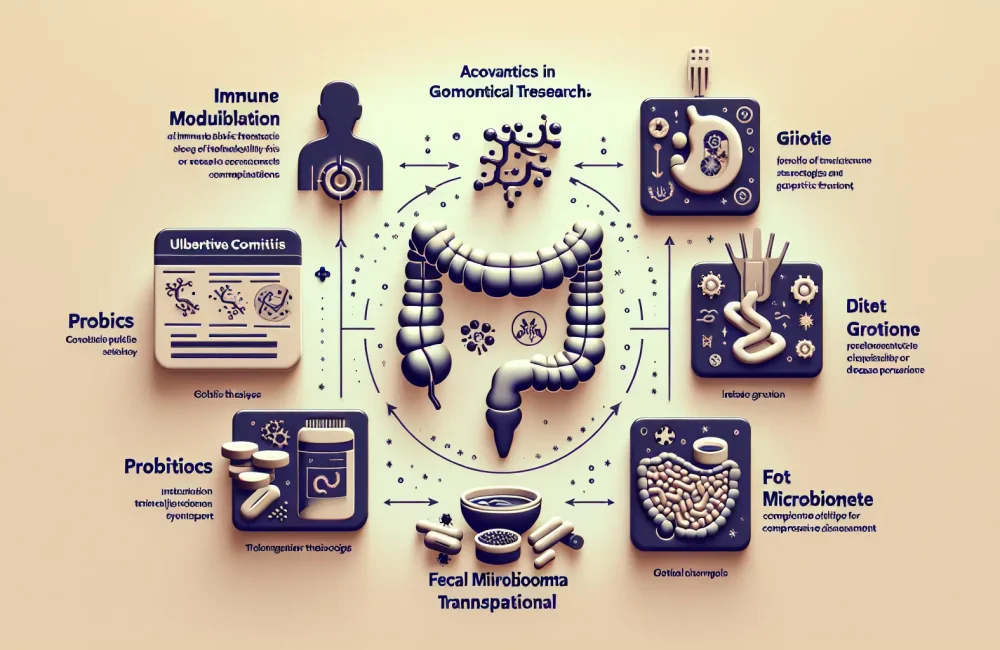By CAFMI AI From Gastroenterology
Mediterranean Diet and Ulcerative Colitis: Study Overview
Ulcerative colitis (UC) is a chronic inflammatory disease primarily affecting the colon, characterized by damage to the intestinal barrier which plays a critical role in disease progression and symptom severity. The Mediterranean diet (MD), known for its high content of fruits, vegetables, whole grains, legumes, nuts, and healthy fats such as olive oil, has been proposed to improve gut health by enhancing the integrity of this barrier. This study focuses on evaluating how well UC patients adhere to the MD and the subsequent effects on their intestinal barrier function. Researchers employed a validated Mediterranean diet scoring system to assess dietary adherence among participants diagnosed with UC. Several key biomarkers were measured to gauge barrier function, including serum zonulin levels, which indicate gut permeability, fecal calprotectin levels, reflecting intestinal inflammation, and mucosal health assessed through endoscopic examination. The results demonstrated a clear correlation: patients with higher adherence to the MD showed significantly lower serum zonulin and fecal calprotectin levels. This suggests that these patients experienced reduced intestinal permeability and inflammation. Endoscopic evaluations further supported these findings, revealing improved mucosal healing in those with greater MD adherence. These findings underline the potential of the Mediterranean diet as a beneficial adjunct to conventional treatments for UC, emphasizing the diet’s role in reducing intestinal barrier disruption and inflammation.
Clinical Implications and Nutritional Strategies in UC Management
For clinicians managing UC, these results highlight the importance of dietary counseling focused on the Mediterranean diet as part of a comprehensive care plan. Given UC’s chronic nature and frequent relapses, interventions that enhance barrier function may contribute to better disease control and improved quality of life for patients. In practical terms, incorporating the MD involves encouraging patients to consume abundant plant-based foods rich in fiber, antioxidants, and anti-inflammatory compounds, which may help restore mucosal integrity and reduce inflammation. Clinical application entails regular assessment of dietary habits and possibly integrating dietitian support alongside pharmacologic treatments like aminosalicylates, corticosteroids, or biologics. Moreover, monitoring biomarkers such as serum zonulin and fecal calprotectin can assist in evaluating treatment response and dietary impact, facilitating personalized patient management. Clinicians should also consider potential barriers to dietary adherence, including cultural preferences, economic factors, and patient education, addressing these through tailored counseling and support. The synergy between diet and medication offers a promising avenue to reduce inflammation, promote mucosal healing, and subsequently decrease flare frequency and severity in UC patients.
Future Directions, Limitations, and Primary Care Integration
While the study presents compelling evidence linking Mediterranean diet adherence with improved intestinal barrier function and reduced inflammation in UC, it also acknowledges limitations. The cross-sectional design does not establish causality, and future longitudinal studies are necessary to confirm these findings and elucidate underlying mechanisms—such as how specific nutrients modulate immune responses and barrier integrity at the molecular level. Additionally, variability in adherence and patient heterogeneity emphasize the need for personalized dietary recommendations. From a primary care perspective, integrating nutritional strategies like the Mediterranean diet can enhance routine UC management, promoting preventive care alongside acute treatment. Primary care providers play a crucial role in early diagnosis, ongoing monitoring, and reinforcing dietary counseling, ensuring sustained patient engagement. Educating patients on recognizing red flags such as increased gastrointestinal bleeding, severe abdominal pain, or signs of systemic infection remains essential for timely specialist referral. Counseling patients about the Mediterranean diet should also include practical advice on meal planning, shopping, and cooking techniques to overcome common challenges. Follow-up should assess symptom changes, diet adherence, and biomarker trends, adjusting treatment plans as necessary. Overall, adopting a multifaceted approach combining diet, pharmacotherapy, and continuous monitoring aligns with current guidelines to optimize outcomes for patients with UC.
Read The Original Publication Here






